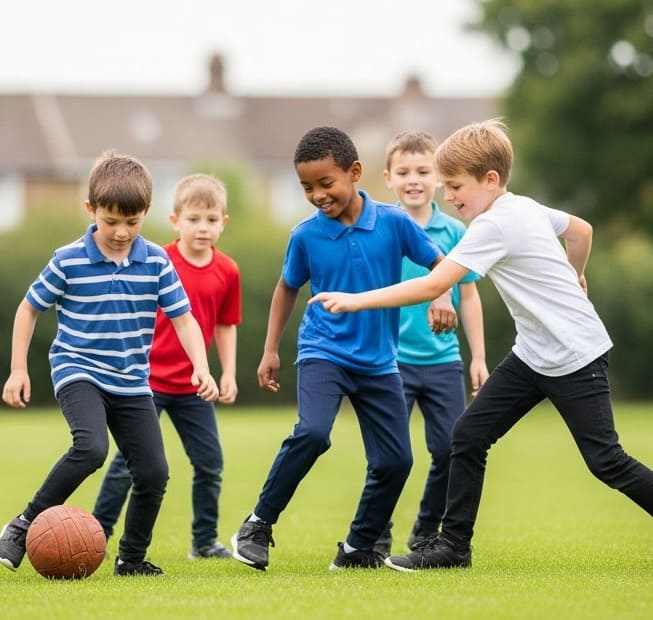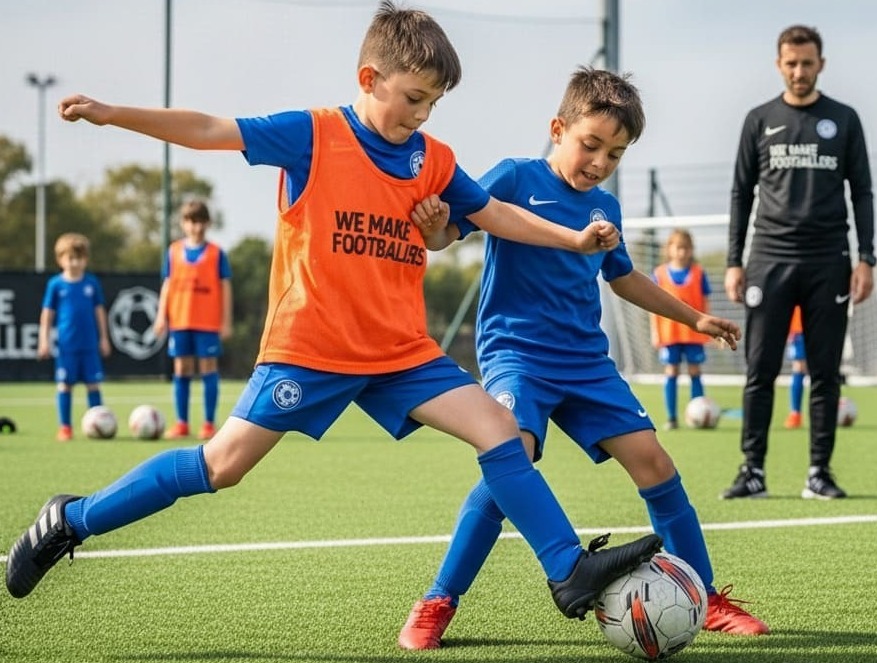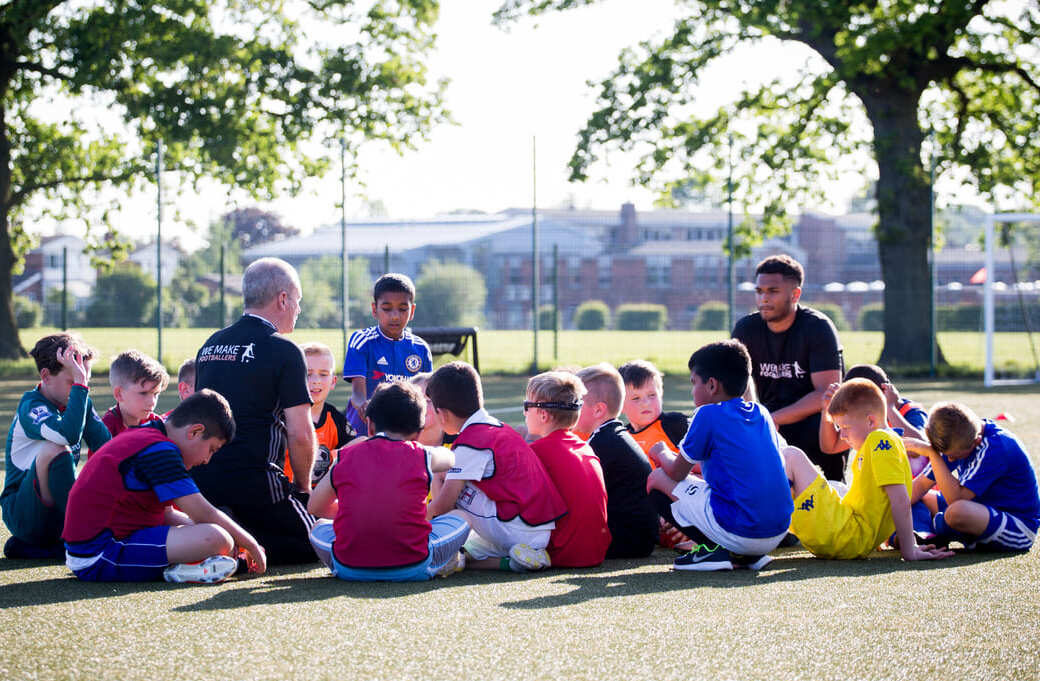Being Part of a Team: Fueling Young Footballers’ Growth
Abstract: Being Part of a Team
This article explores how being part of a team transforms individual training into shared experiences that boost confidence and personal growth. We Make Footballers operates over 90 academies across the UK, welcoming more than 12,000 children each week. We’ll explore four core themes that shape peer development: friendship in sports, peer-to-peer support, athlete inspiration, and youth motivation strategies.
Introduction: The Importance of Being Part of a Team
Being part of a team means more than just wearing matching shirts. It’s about passing, trusting, and growing together. At We Make Footballers, our 39-week programme uses small training groups (no more than 10 players per coach) and a consistent philosophy—**Practice Makes Permanent**—to develop key skills in a supportive environment. Picture a child entering one of our UK academies on a rainy afternoon, greeted by teammates and coaches in a warm, structured setting. This familiarity breeds belonging. Yet teamwork doesn’t always start smoothly. Some children might miss a pass or feel nervous on day one. Our coaches help each child adjust with positivity, guidance, and games that balance structure with fun. Quote placeholder: “When you score together, you learn to cheer together.”
Peer support is embedded in our sessions, helping young footballers build friendships and habits that last long after the final whistle.
Friendship in Sports
Many children start training simply because their friends are playing. A shared laugh or a well-timed pass can spark lasting bonds. At We Make Footballers, we see how friendship strengthens motivation, improves commitment, and encourages regular attendance.
-
Children who begin shy often grow into confident players when encouraged by a teammate.
-
Friendship groups tend to return term after term, supporting each other through drills and matches.
-
A pair or trio training together often self-organise into informal teams, driving skill repetition through fun.
Research on friendship in football shows that peer connection increases enjoyment and deepens learning. These relationships reinforce the idea that sport is not just about winning—it’s about belonging.
Sport Peer to Peer
Peer-to-peer coaching is a key method we use to make learning more interactive. When players explain or demonstrate to one another, they internalise lessons faster. This method keeps engagement high and helps develop communication, listening, and leadership. Instead of waiting for coach instruction, players learn to observe, adjust, and support each other—skills that extend beyond the pitch. Coaches maintain oversight, ensuring feedback stays constructive and uplifting.

Athletes Influence on Youth
Seeing a skilled player in action can trigger enthusiasm and focus that lasts for weeks. At We Make Footballers, over 200 graduates have gone on to join professional clubs. Their journeys become inspiration for younger players still learning their first passes.
Mini-case example:
• Before exposure to a guest athlete: players averaged 15 passes per session, 58% accuracy
• Two weeks after: 24 passes per session, 76% accuracy
These real-world stories prove that relatable role models increase motivation, effort, and consistency. They demonstrate that progress is achievable—and worth chasing. Photo suggestion: before/after of a young player showing improved ball control.
Youth Sports Motivation
Sustaining motivation in young athletes requires variety and celebration. We Make Footballers incorporates fresh elements into weekly and holiday sessions that ignite enthusiasm. Here are four tools we use:
-
Goal Charts 🗺️
Children set weekly targets and tick them off, building self-driven accountability. -
Timed Games & Challenges 🎯
From relay races to penalty shoot-outs, quick-paced contests keep spirits high. -
Team Tasks & Rewards ⚔️
Players earn stickers or points for acts of kindness, teamwork, or fair play. -
Reflection Journals 📓
End-of-term ceremonies highlight progress, and kids record their proudest moments.
These activities fuel joy, boost team connection, and keep children coming back—ready to learn and laugh again.
Putting It All Together
Being part of a team combines multiple benefits—friendship, mutual learning, inspiration, and fun motivation. We Make Footballers supports all skill levels, offering inclusive sessions with small coach-to-child ratios and enhanced safety measures.
Our academies across the UK provide weekly training, one-on-one development, and school holiday camps that help children thrive. All sessions are held in nut-free environments, with anti-bullying policies and enhanced DBS-checked coaches present at every site. Ready to watch your child grow in skill, confidence, and teamwork? Book a free taster session at your nearest We Make Footballers academy and start a journey that builds both feet and friendships.



